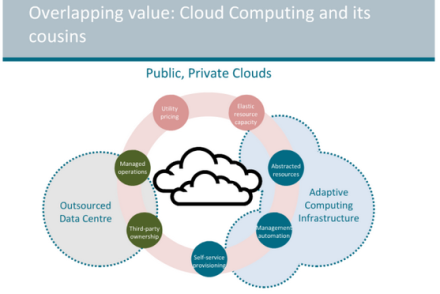In the world that we live in, technology is rapidly advancing, and with that, there are more jobs needing to be filled to meet the demand. Being a Network Administrator is just one of the many lucrative opportunities that have arisen as of late.
As you read on, we’ll cover what exactly being a Network Administrator contains, as well as the many pros and cons of working as one!
What Exactly is a “Network Administrator”?
In a nutshell, a Network Administrator is responsible for the day-to-day operation of computer networks, typically associated with an organization. The tasks associated with a Network Administrator can include, but are not limited to:
- The installation and coordination of computer programs belonging to an organization.
- Optimizing and even determining the overall performance of the computer systems.
- Regular maintenance of system security. This can include the network or the computer itself.
- Management of the Local Area Networks (also known as LANs) including their Wide Area Networks (Known as WANs).
- Understanding and acting upon the system necessities, including the installation of software and hardware.
- Problem-solving when the system alerts a user of an error.
- Management of users on the network. This can include system permissions.
- Maintaining the system’s functionality by performing updates and upgrades to the hardware. This can include making sure the system operates smoothly.
- Training users to maximize capabilities with operating the software and hardware.
- And more…
Ultimately, who does this help? This helps the organization in managing their servers and hardware belonging to their desktops, making sure that they work most efficiently. This can also help network architects develop and examine different models for the network.
Furthermore, they have very valued opinions on company hardware and making sure that the organization has all they need to operate smoothly. Some would say, the Network Administrators are the “go-to” people for anything IT related, as they can provide help and assistance for anyone having technical issues.
What are the Skills of a Network Administrator?
The desired skills for a Network Administrator are:
- Patience – First and foremost. You’ll be dealing with a lot of technical issues that arise, including collaboration with others — some of this may be tedious because it can involve a lot of problem-solving on your end.
- Problem Solving – You need to have a knack, or at the very least exercise the need to solve problems, or know where to get the answers. Thus, it may require you to take initiative.
- Initiative – You must exercise your initiative to work hard, and maybe on your own clock as these problems could hinder the organization in ways that only you can ail. This may require a lot of enthusiasm on your part.
- Enthusiasm – A love for what you do. The whole package, from problem-solving to teamwork skills and having attention-to-detail. This means to tackle every task with great zeal. This will make the previous points easier to manage.
- Teamwork Skills – You’re going to need to be able to work well with others as much of the work done is collaborative. This may require some interpersonal skills.
- Interpersonal Skills – Your teamwork skills hinge around your ability to communicate with others. This can also mean how your attitude affects the work environment and productivity.
- Technical Ability – This includes your IT skills, and how well you manage technology and tech-related issues. This requires a lot of attention to detail.
- Attention to Detail – This circles back to patience, problem-solving, and being able to minimize error and spot solutions.
What are the Desired Qualifications?
Firstly, you’ll be happy to know, whether you are a graduate or have dropped out of school, there are careers in this field for you. It is, however, uncommon.
Typically, you’re asked to have a computer science degree, or perhaps, a software, or electronic engineering degree. Why? It’s useful to have someone fill this position if they have prior experience in things like running networks on different network operating systems. Being an intern can help you land a job as well!
However, should you not have any prior education –don’t fret. There are many quick and simple options for obtaining an education that can help you in your job-seeking venture. For instance, there are brief courses in which you can learn about networking and networking design, or courses on websites like Udemy.
However, there are a lot of places that will take you in regardless of what degree you have. Regardless, the point you want to make to future employers, is that you have a deep enthusiasm for technology.
Is Being a Network Administrator Hard?
In short, “yes” it is hard. However, don’t let this discourage you from making the jump in career paths. Why is it hard? This is simply because every network is unique.
Furthermore, when debugging and troubleshooting an “established network”, this might require more skill and further comprehension of how things work.
On top of that, it’s important to know your configuration elements and how they properly function — and should a mistake be made, there isn’t exactly a way to undo an action (when cut-off from the server) to make it right again.
This is but the very tip of the iceberg when it comes to Network Administration. Yes, many aspects of the process are grueling and inconvenient — yet for us problem-solvers, it’s not without its rewards.
Is Being a Network Admin a Good Career Choice?
Being a Network Admin is an excellent career choice, especially if you are fulfilled by managing the hardware and software of other people.
This is a consistently in-demand job, especially for organizations that are on the rise, which means more network complexity, and more people needed to support their growth.
Where Could I Work as a Network Admin?
Luckily for you, Network Administrators are very high in demand. Tens of thousands of jobs are posted every year looking for a Network Admin.
These can include:
- Colleges and Universities. Really any educational institute.
- Healthcare Institutions.
- Insurance Providers.
- Technical Consultants.
- and more…
What is a Typical Day in the Life of a Network Admin?
To start off, what does one do as a Network Admin? — manage an entire network of computers while supporting the individuals that make up their team.
Typically, one might solve errors created by users, check the logs, or even start auditing. No two days are ever really the same for a Network Admin.
You’re always met with new challenges. For instance, you could be given a project to automate day-to-day tasks, or coming up with innovative ideas to improve the network, or just simply doing research on tech.
Many Network Admins have the option to work 40 hours a week, or just simply be on-call. It depends where you end up working and the demand they have for you.
What is a Typical Network Administrator Salary?
What is remarkable about the wage of a Network Administrator, is that the pay has increased by 4.7 % over the course of two years. To understand this further, in 2018 the salary ranged from $73,250 – $123,250.
In the following year of 2019, the wage got a little bump, ranging from $74,750 – $126,750. Finally, in the year 2020, it ranges from $76,250 – $129,500. This means that being in the role of a Network Administrator shows promise and has room for growth!
However, while this may be the average amongst the entire United States, it does vary from state-to-state. Let’s dive deeper into what that looks like. According to itcareerfinder.com — these are the average wages for the following states:
– Alabama, the annual wage, $76,370 — the hourly wage, $36.72
– Alaska, the annual wage, $82,980 — the hourly wage, $39.89
– Arizona, the annual wage, $85,850 — the hourly wage, $41.27
– Arkansas, the annual wage, $65,220 — the hourly wage, $31.36
– California, the annual wage, $97,810 — the hourly wage, $47.02
– Colorado, the annual wage, $84,170 — the hourly wage, $40.46
– Connecticut, the annual wage, $93,230 — the hourly wage, $44.82
– Delaware, the annual wage, $80,990 — the hourly wage, $38.94
– District of Columbia, the annual wage, $99,920 — the hourly wage, $48.04
– Florida, the annual wage, $79.070 — the hourly wage, $38.02
– Georgia, the annual wage, $86.910 — the hourly wage, $41.78
– Hawaii, the annual wage, $86,530 — the hourly wage, $41.60
– Idaho, the annual wage, $66,930 — the hourly wage, $32.18
– Illinois, the annual wage, $86,290 — the hourly wage, $41.49
– Indiana, the annual wage, $75,500 — the hourly wage, $36.30
– Iowa, the annual wage, $74,940 — the hourly wage, $36.03
– Kansas, the annual wage, $75,940 — the hourly wage, $36.51
– Kentucky, the annual wage, $64,320 — the hourly wage, $30.92
– Louisiana, the annual wage, $68,380 — the hourly wage, $32.87
– Maine, the annual wage, $76,780 — the hourly wage, $36.91
– Maryland, the annual wage, $108,190 — the hourly wage, $52.01
– Massachusetts, the annual wage, $91,470 — the hourly wage, $43.98
– Michigan, the annual wage, $77,580 — the hourly wage, $37.30
– Minnesota, the annual wage, $85,620 — the hourly wage, $41.16
– Mississippi, the annual wage, $75,000 — the hourly wage, $36.06
– Missouri, the annual wage, $82,160 — the hourly wage, $39.50
– Montana, the annual wage, $64,780 — the hourly wage, $31.14
– Nebraska, the annual wage, $78,620 — the hourly wage, $37.80
– Nevada, the annual wage, $84,330 — the hourly wage, $40.54
– New Hampshire, the annual wage, $87,720 — the hourly wage, $42.18
– New Jersey, the annual wage, $99,070 — the hourly wage, $47.63
– New Mexico, the annual wage, $76,700 — the hourly wage, $36.87
– New York, the annual wage, $94,940 — the hourly wage, $45.64
– North Carolina, the annual wage, $84,870 — the hourly wage, $40.80
– North Dakota, the annual wage, $71,180 — the hourly wage, $34.22
– Ohio, the annual wage, $80,500 — the hourly wage, $38.70
– Oklahoma, the annual wage, $73,130 — the hourly wage, $35.16
– Oregon, the annual wage, $82,020 — the hourly wage, $39.44
– Pennsylvania, the annual wage, $77,700 — the hourly wage, $37.36
– Puerto Rico, the annual wage, $47,000 — the hourly wage, $22.59
– Rhode Island, the annual wage, $90,600 — the hourly wage, $43.56
– South Carolina, the annual wage, $75,630 — the hourly wage, $36.36
– South Dakota, the annual wage, $62,420 — the hourly wage, $30.01
– Tennessee, the annual wage, $80,030 — the hourly wage, $38.48
– Texas, the annual wage, $89,500 — the hourly wage, $43.03
– Utah, the annual wage, $81,430 — the hourly wage, $39.15
– Vermont, the annual wage, $75,170 — the hourly wage, $36.14
– Virginia, the annual wage, $93,860 — the hourly wage, $45.13
– Washington, the annual wage, $92,750 — the hourly wage, $44.59
– West Virginia, the annual wage, $68,980 — the hourly wage, $33.16
– Wisconsin, the annual wage, $75,320 — the hourly wage, $36.21
– Wyoming, the annual wage, $66,340 — the hourly wage, $31.89
What are the Pros and Cons of Being a Network Administrator?
The Pros:
- If problem-solving fulfills you on a spiritual level, you will be doing a lot of that through being a Network Admin. You’re basically the “go-to” person of the tech department for anything that goes amiss with the technology your business uses to thrive and get work done. This is meant for people who love a good challenge.
- Importance of role. If you thrive under pressure, then this is excellent. Many organizations are built around their computers and network. The organization could take a hit without you being there to make sure everyone is able to work again. This is where you can make or break things.
- Vast job opportunities are available to Network Admins. Regardless of shape, size, niche, location… etc. Network Administrators are always in-demand.
- The pay is pretty good. As you’ve seen prior to this, the average pay in the States is around $71,000 a year.
- There are lots of opportunities to advance in the field.
- You’re able to freelance. This is good for those who would rather have a sense of freedom and say where and when they work.
- If you’re a team player, there are a lot of opportunities to work with other people.
The Cons
- For those who don’t thrive under a lot of pressure, they might not be able to perform at their best. It’s an important role, and when people need you to get things up and running again, the clock will be ticking.
- It might drive you crazy to find the solution to a week-long issue. This may be something crucial to keeping things running smoothly, in which case you might end up working off the clock, losing sleep, or letting it take up rent in your head.
- If you’re anti-social, it might not be for you. You’ll be working with a lot of people, and people-skills are generally an asset to creating a healthy and communicative work environment. This especially applies in situations where you are needed to collaborate.
- The hours might be grueling if you’re stuck on a consistent issue that needs solving.
What’s the Difference Between a Network Administrator and Systems Administrator?
Some people can get the role and responsibilities of being a Network Administrator and Systems Administrator mixed up. There is a blurred line between these to roles, however, we will point out what makes them so different, and perhaps, what makes them alike!
Now, depending on who you work for, it’s important to know: these titles may be used interchangeably as they cover many of the same duties.
For instance, both are:
- In charge of keeping software up-to-date. This also includes rolling-out new iterations of the software and implementing them in daily practice amongst the employees of the organization.
- Giving the networks a nice upgrade, or repairing them of whatever issues. This can include troubleshooting network issues.
- In charge of the management of the servers including their operating systems.
- Taking security measures and doing tests.
- Managing the configuration of network hardware. This can include routers, switches and different servers.
- Lending assistance to network architects to design the model of the network the organization runs on.
- Working with the cloud as the storage space of the physical network.
Now, in short: What makes these two different is that a Network Admin is in charge of overseeing the network. In this context, it’s a group of computers that are connected together.
This differs from a System Admin — who is in charge of the computer systems. This is essentially all of the parts that make a computer function properly.
Frequently Asked Questions:
In short, a Network Administrator is responsible for maintaining the functionality of an organization’s computer network and making sure that everything is up-to-date and running smoothly. Companies that have evolved, thus increasing network complexity, need to have more Network Administrators to coordinate all of their networks among the various systems.
The average salary for Canadians in Network Administration is around $ 63, 376 a year. However, this can vary ranging from $ 70,000 – $ 110,000 depending on the company or organization you’re working for.
There are many different courses you can take to become trained in Network Administration. For instance, there are registered online programs that will allow you to become certified, like CDI College, Udemy (depending on the right online course), or even NAIT.
There are also many courses on campus where you can learn these skills too. Depending on where you live, the results may vary.
In short: It’s not impossible, but it isn’t easy. You’d have your best chance at obtaining a Network Admin career if you were to join an accelerated training program for IT. It’s important that you learn about cybersecurity and networking.
There are many training center programs for IT that can help you get started with minimal experience. This helps, especially if you’re more of a hands-on learner as much of what you’ll do it first-hand.
Conclusion
Now you should have an excellent idea of what a Network Administrator does, and if the career path is right for you! Going forward, use this article as a reference guide should you need some direction. Pursuing an education in IT is definitely ideal if you’re looking for a stable career and show an enthusiasm for tech-related issues.
Overall, while it might not be the easiest job, it’s certainly rewarding and highly recommended. What do you think of this career? Is it something you would consider pursuing in the future?
- CCNA vs CCNP-Which Certification is Best for You? - March 30, 2021
- The Network Administrator Job Description and Salary Guide - July 21, 2020
- Health Information Management Job Description and Salary Expectations - December 14, 2019








No Comments